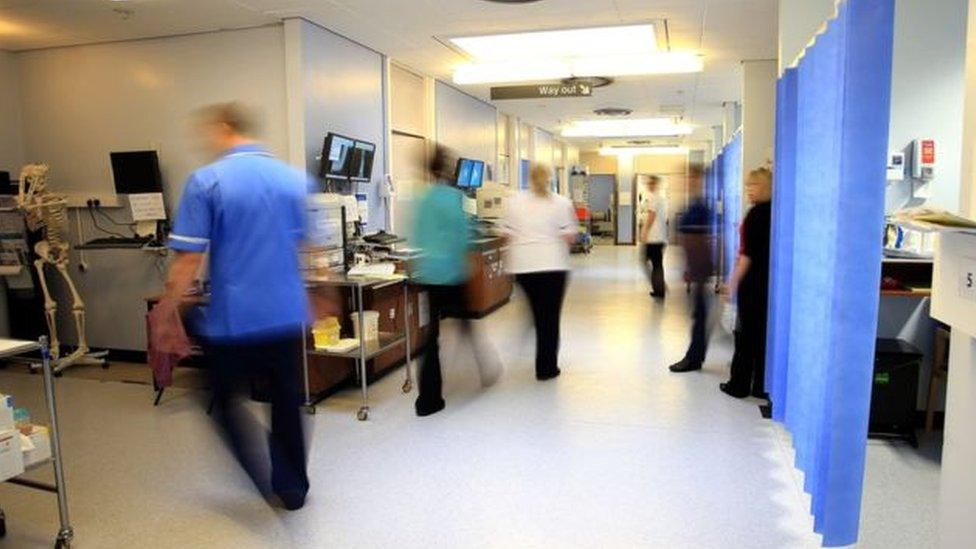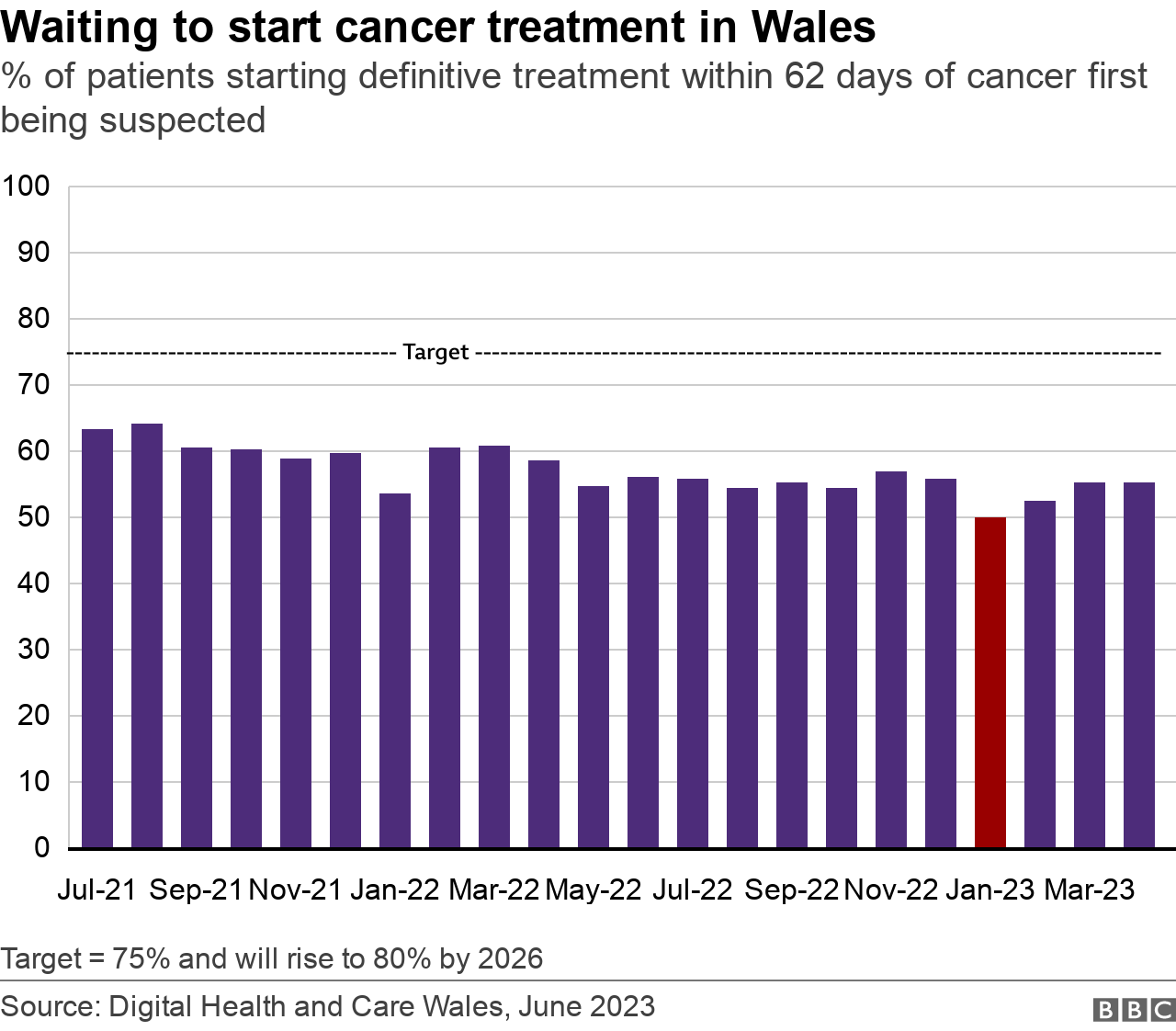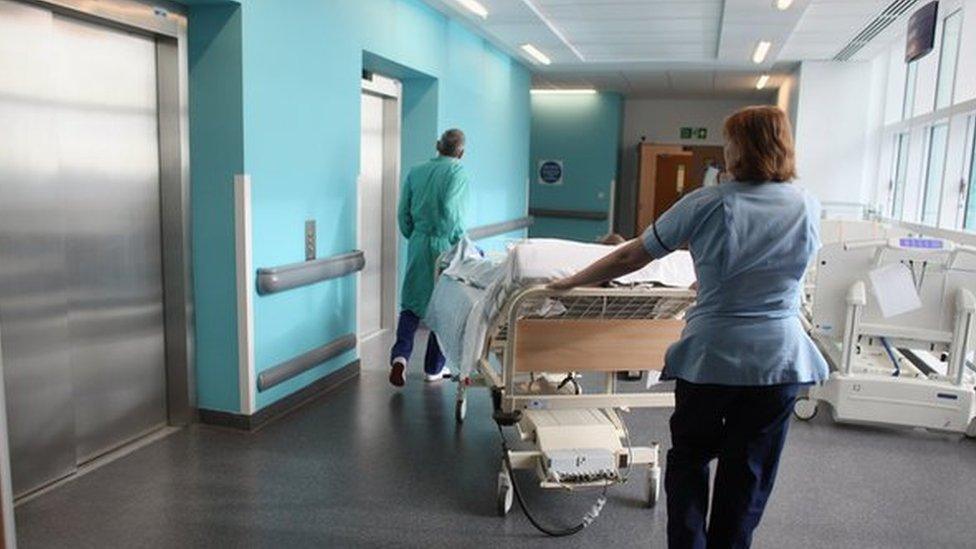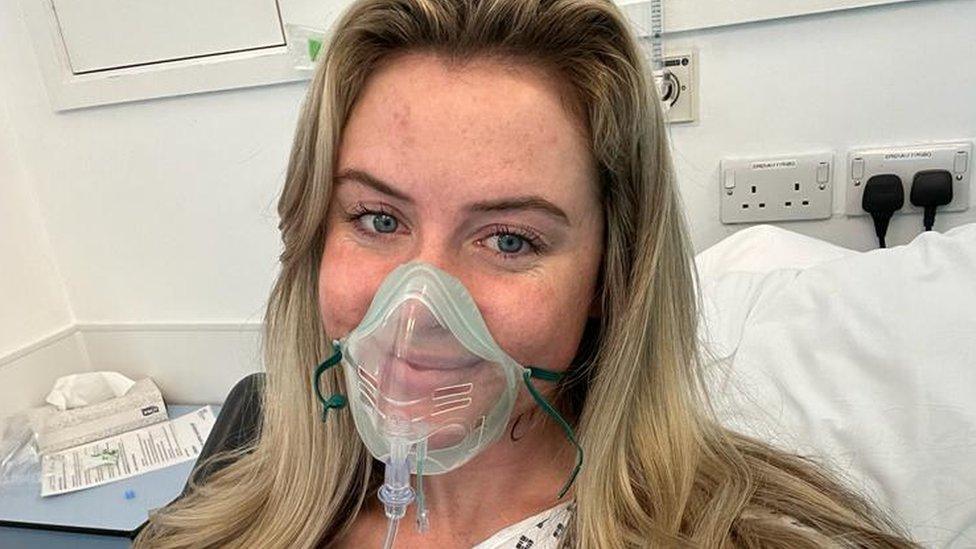NHS wait times: Number on lists in Wales up by 6,000
- Published
- comments

Ambulance response times in Wales are the best since May last year
The number of people on NHS waiting lists in April has gone up by 6,000 - the second monthly rise.
Meanwhile, numbers waiting more than a year rose for the first time in eight months and the reduction in those waiting two years has slowed.
The Royal College of Surgeons called it a "wake up call" while NHS Wales leaders called it "disappointing".
However, ambulance response times and A&E waiting times have both improved.
There were 743,339 "patient pathways" in April - an extra 8,600 - with 136,534 of these waits of more than a year.
There is also a target that no-one should wait more than two years - but 31,481 are still waiting that long.

Some patients are on more than one waiting list, so it it estimated that about 582,000 people are on waiting lists, a rise of 6,000 and a second successive increase after a fall in the previous five months.

Waiting times for hospital treatment can be adjusted to make them more comparable with England.
This means that 4.7% of patients in Wales are waiting two years or more for treatment, compared to 0.01% in England, with waits of a year or more at 20.3% and 5% respectively.
Hospital activity - routine in-patient surgery and day case operations - is up 17% in the first four months of 2023, compared to the same period last year.

A key post-pandemic recovery target - that no-one should wait more than a year for an outpatient appointment - continues to be missed, but numbers have improved for an eighth consecutive month.
There were still 52,800 patients waiting more than a year for an outpatient appointment, a monthly drop of just 94.
Ambulance response times improved, with 53.4% of immediately life-threatening "red" calls attended to within eight minutes in May - the best performance for a year, although still outside the target.
The average response time was seven minutes 25 seconds, 11 seconds quicker than April but three seconds slower than a year ago.

A&E's four-hour target to get people admitted, transferred or discharged was hit 72% of the time, with the average waiting time standing at two hours and 36 minutes.
Meanwhile, 8,983 people spent 12 hours or more in A&E, slightly more than the previous month.
Despite being well enough to be discharged, more than 1,500 patients remained in hospital. Most of these were elderly patients waiting for assessment, care places or support.
Ambulance handover delays fell - although there were still nearly 20,000 "lost" hours.
This is time spent above 15 minutes, when ambulances wait to hand over patients at major emergency units.

Cancer waiting time performance remained the same as the previous month - but worse than a year ago, with 55.3% of patients starting their first definitive treatment within 62 days of cancer first being suspected.
NHS Wales chief executive Judith Paget called the overall waiting list rise "disappointing" and the health minister has asked health boards to redouble efforts to tackle the longest waits.
Prof Jon Barry, director in Wales at the Royal College of Surgeons, said the jump in the waiting list "should be considered a wake-up call".

Conservative health spokesman Russell George said: "I am disappointed to see so little progress being made to bring relief to patients being left in limbo for years."
Plaid Cymru's Peredur Owen Griffiths said the Welsh government had "desperately failed to get to grips with the gridlock in our NHS".
Related topics
- Published18 May 2023

- Published8 March 2023

- Published23 February 2023
